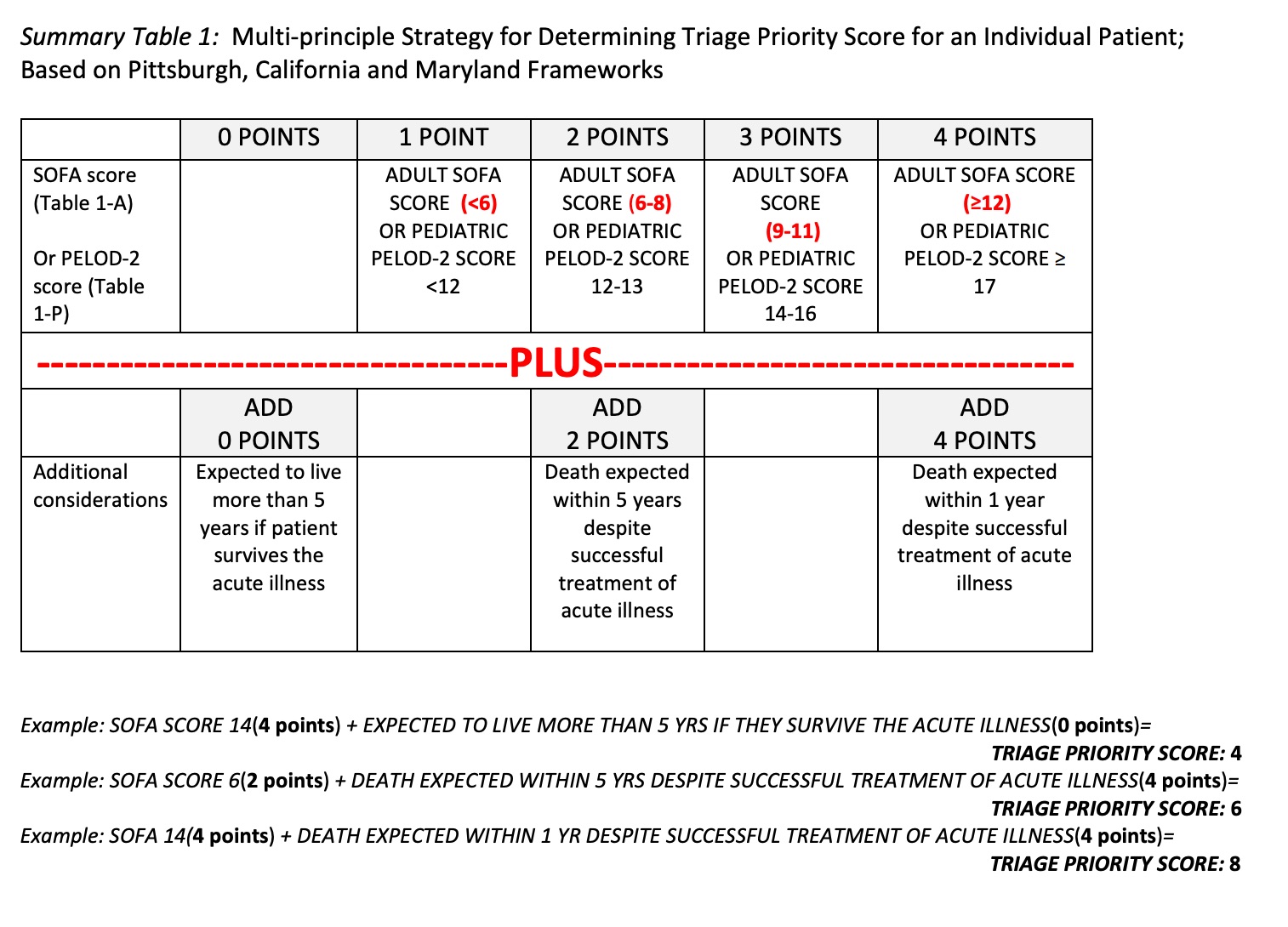“All lives are precious,” the addendum states, before claiming that “no one will be categorically denied care based on stereotypes, assumptions about any person’s quality of life, or judgement [sic] about a person’s ‘worth’ based on the presence or absence of disabilities.” However, under the newly initiated rules, doctors are protected from any legal liability surrounding the life or death decisions they will be making on a moment’s notice.ae0fcc31ae342fd3a1346ebb1f342fcb The so-called “crisis standards of care” (CSC) are a harsh reminder of the realities faced by the strained healthcare professionals tasked with tackling the coronavirus pandemic. RELATED: For more up-to-date information, sign up for our daily newsletter. Now, in an Arizona hospital, a patient will assigned points “based on the individual evaluation” and “consideration of one-year or five-year mortality,” the addendum notes. “Lower scores indicate higher likelihood of benefiting from critical care, and priority is given to those with lower scores.” The announcement also comes just as Arizona reported its highest ever single-day spike of 4,800 COVID-19 cases on July 1, NBC News reports. The Los Angeles Times notes that ranking patients during triage will make use of something called “sequential organ failure assessment” (SOFA), which scores patients based on the condition of the lungs, circulatory, heart, kidney, liver, and neurological systems. The use of SOFA has come under fire in the past as unreliable, described as “poor predictors of individual patients’ survival” by The National Academies Press. In a state suffering from a pandemic that has an above-average population over the age of 65, there are some who fear this rubric will lead to many difficult decisions being made by overworked doctors. Here is a sample of how the scoring works: Christine Severance, MD, a Phoenix-based family physician, authored a petition signed by over 1,000 physicians looking to have CSC enacted by the state, as well as a renewal of expired stay-at-home orders. “Historically, our use of crisis care standards in the United States has been limited to terrorist attacks, mass shootings, battlegrounds, and aviation accidents,” Severance wrote in the petition. “What pains us most is that this was avoidable.” And for more on where you can go to avoid COVID-19, check out Your Risk of Contracting Coronavirus Is Highest in These Two States.
